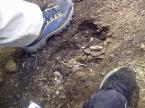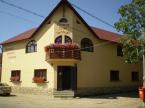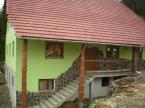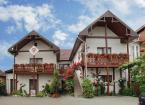Information
WIKI REFRESH Carei (Hungarian: Nagykároly, German: Grosskarol/Großkarl) is a city in Satu Mare County, northwestern Romania, near the border with Hungary. It has 23,000 inhabitants (2004): 40% Romanians, 53% Hungarians, 3% Roma, and 3% Germans.
The city was named after an old noble family, the Károlyi. The municipality contains two settlements: the city of Carei and the village of Ianculeşti (Hungarian: Szentjánosmajor). The neighbouring communities are Hungarian-speaking villages of German origin, such as Căpleni (Hungarian: Kaplony, German: Kaplau), Urziceni (Hungarian: Csanálos, German: Schöntal), Foieni (Hungarian: Mezőfény, German: Fienen), Sanislău (Hungarian: Szaniszló, German: Stanislau), Petreşti (Hungarian: Mezőpetri, German: Petrifeld), Tiream (Hungarian: Mezőterem, German: Terem), Căuaş (Hungarian: Érkávás), and Moftin (Hungarian: Nagymajtény).
History
The city of Carei was first mentioned in 1335 as being a borough of the Károlyi family. Located in Szatmár County in the Principality of Transylvania, it became part of the Kingdom of Romania in 1919/1920. Until 1940, Carei was in Sălaj County. It then reverted to Hungary for a short time during World War II. After the war ended Carei was returned to Romania by the Treaty of Paris.It was located in the Baia Mare Region between 1952 and 1960, in the Maramureş region between 1960 and 1968 and since 1968, it has been in Satu Mare County.
Tourism
Carei has a 13th century castle, modified in the 19th century. The castle is surrounded by a dendrological park (one of the few in Europe), filled with some of the rarest type of trees and plants.Satu Mare CountyMunicipalities in Romania

 English
English









